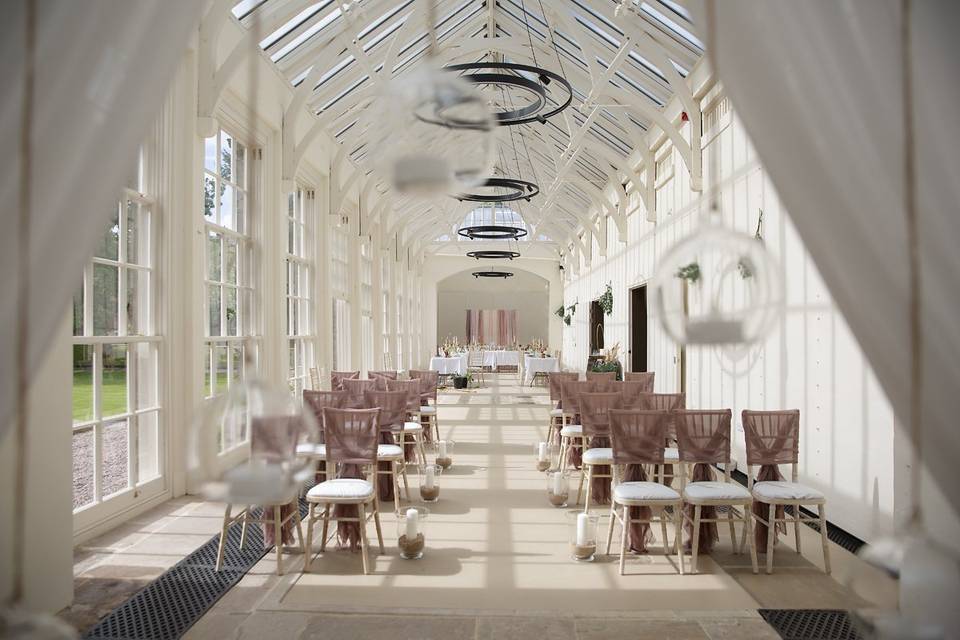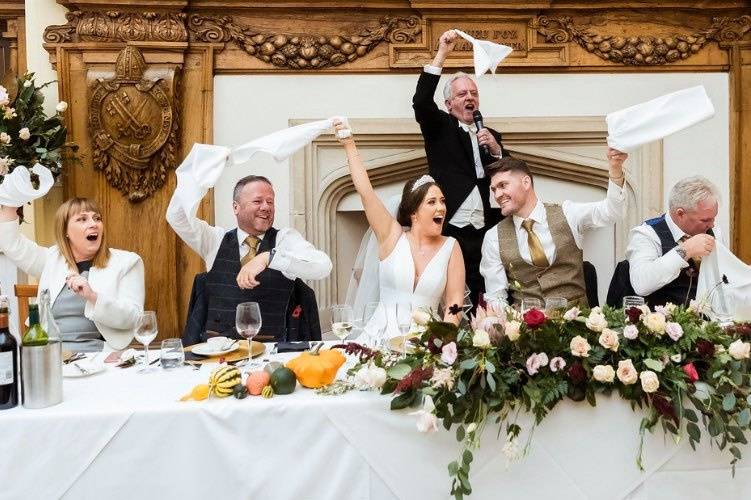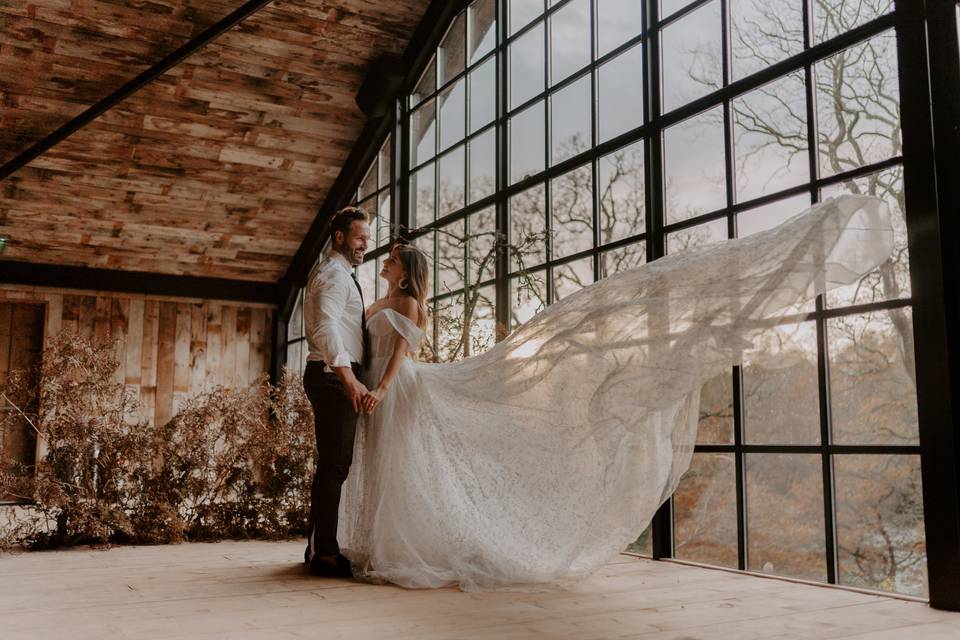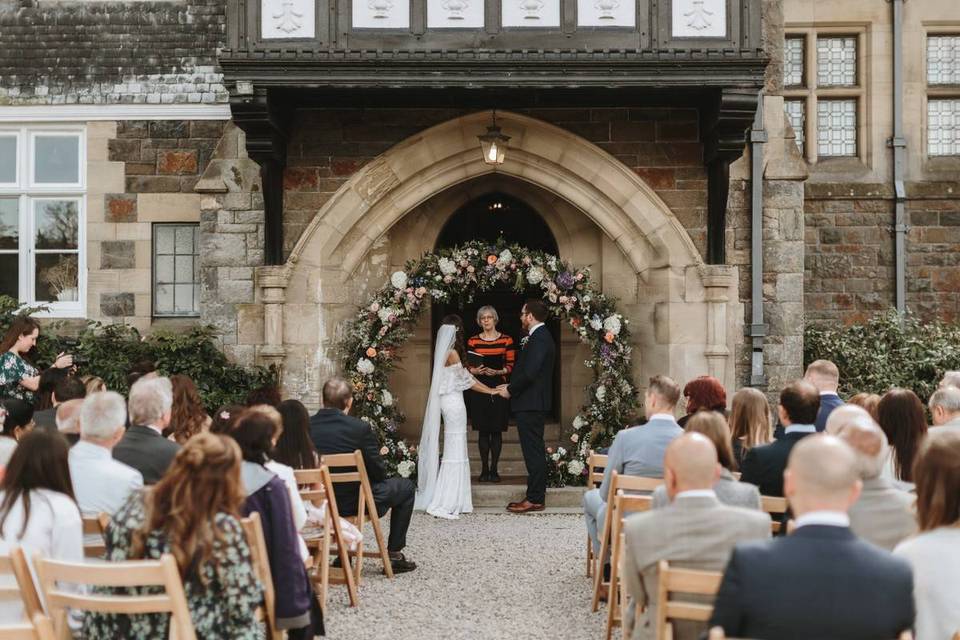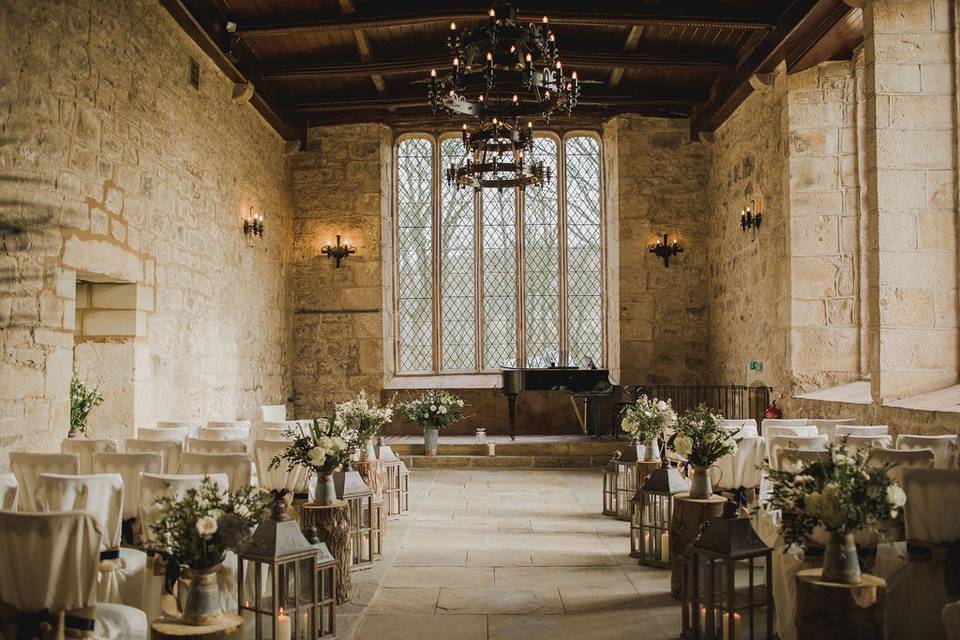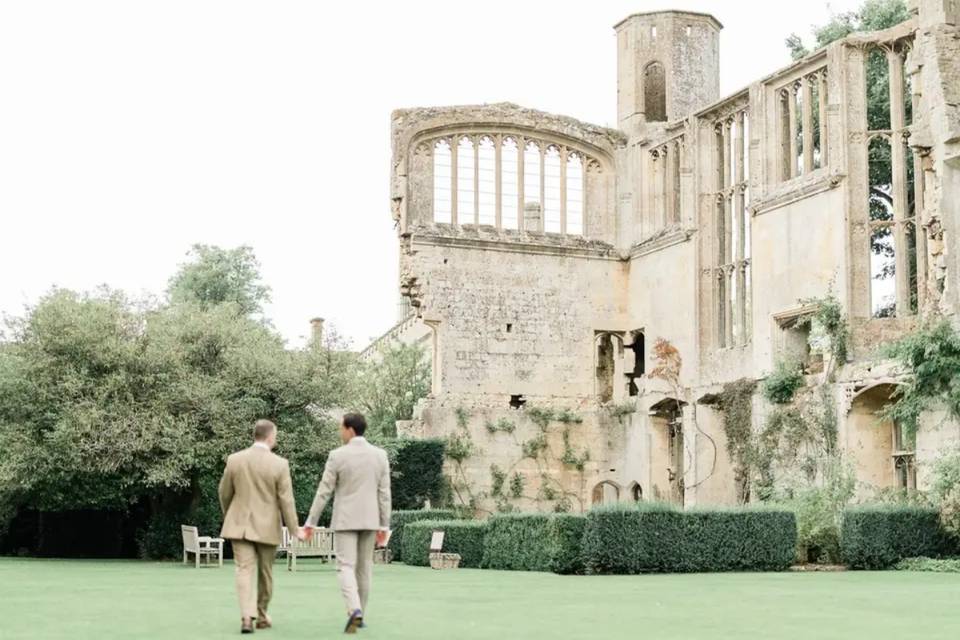The Wedding March: Everything You Need to Know
From the origins of the original wedding march music to the royal wedding that made it popular and the alternatives we're loving today, we give you the lowdown on this iconic piece of wedding music.
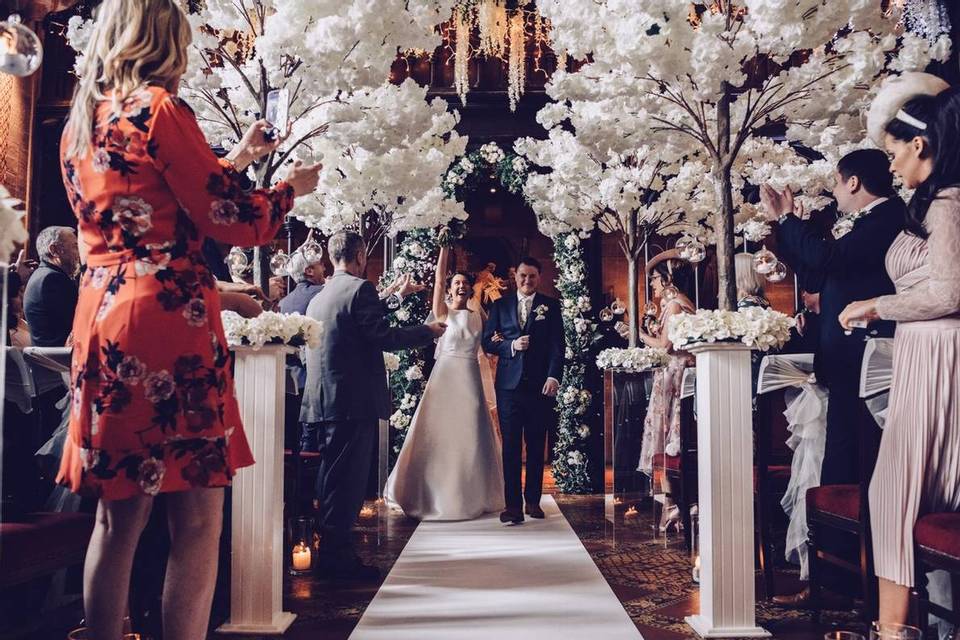
There are plenty of old Western wedding traditions that are still going, from wearing a white wedding dress to cutting the wedding cake and wearing a ring on your left hand.
You’ve probably heard of the wedding march dozens of times and are aware that this too is an enduring wedding tradition. But did you know the wedding march has its roots in a royal wedding? Or that before the wedding march, music was reserved for the wedding reception only? Pretty crazy considering how much thought today’s couples put into wedding ceremony songs!
To demystify the whole thing, we’re here to give you a little history lesson and a little inspiration when it comes to choosing your own processional and recessional music.
Whether you go with the traditional tunes or branch out to something more modern, we reckon your entrance will be totally royal wedding-worthy.
READ MORE:
- 60 of the Best Wedding Readings
- Multicultural Weddings: How Real Couples Merged Their Cultures on Their Wedding Day
- The Complete Wedding Ceremony Guide: How to Plan the Order of Your Ceremony
What Is the Name of the Traditional Wedding March?
The name of the traditional wedding march is simply 'Wedding March' and it was written by German composer Felix Mendelssohn.
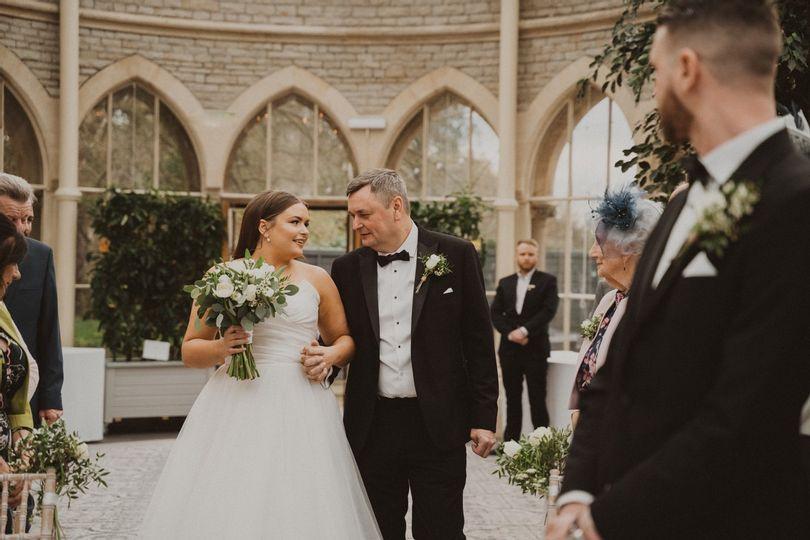
Who Was the Wedding March Written For?
Although the name sounds as though the music must have been written especially for a wedding, 'Wedding March' actually began life on stage. The piece of music we now recognise as 'Wedding March' was written by Felix Mendelssohn for an 1842 production of Shakespeare’s A Midsummer Night’s Dream.
The song that often accompanies 'Wedding March' is the piece known as 'Here Comes the Bride' or 'Bridal Chorus'. Another piece with theatre origins, 'Here Comes the Bride' was written by Richard Wagner for his 1850 opera Lohengrin.
Both songs were chosen by Princess Victoria Adelaide Mary Louise, the oldest child of Queen Victoria, and her groom Frederick William IV of Prussia for their wedding on the 25th January 1858 at the Chapel Royal at St James’ Palace. The princess processed to the altar to Wagner’s piece before the newlywed couple recessed to 'Wedding March'.
Before the 1858 royal wedding, music was generally only played at the wedding reception and it was because of the princess’ love of opera, and of Wagner and Mendelssohn in particular, that she decided to set her ceremony to their music.
Just like her mother (Queen Victoria is the reason brides wear white gowns!), the princess began a trend and couples began using the music at their own weddings.
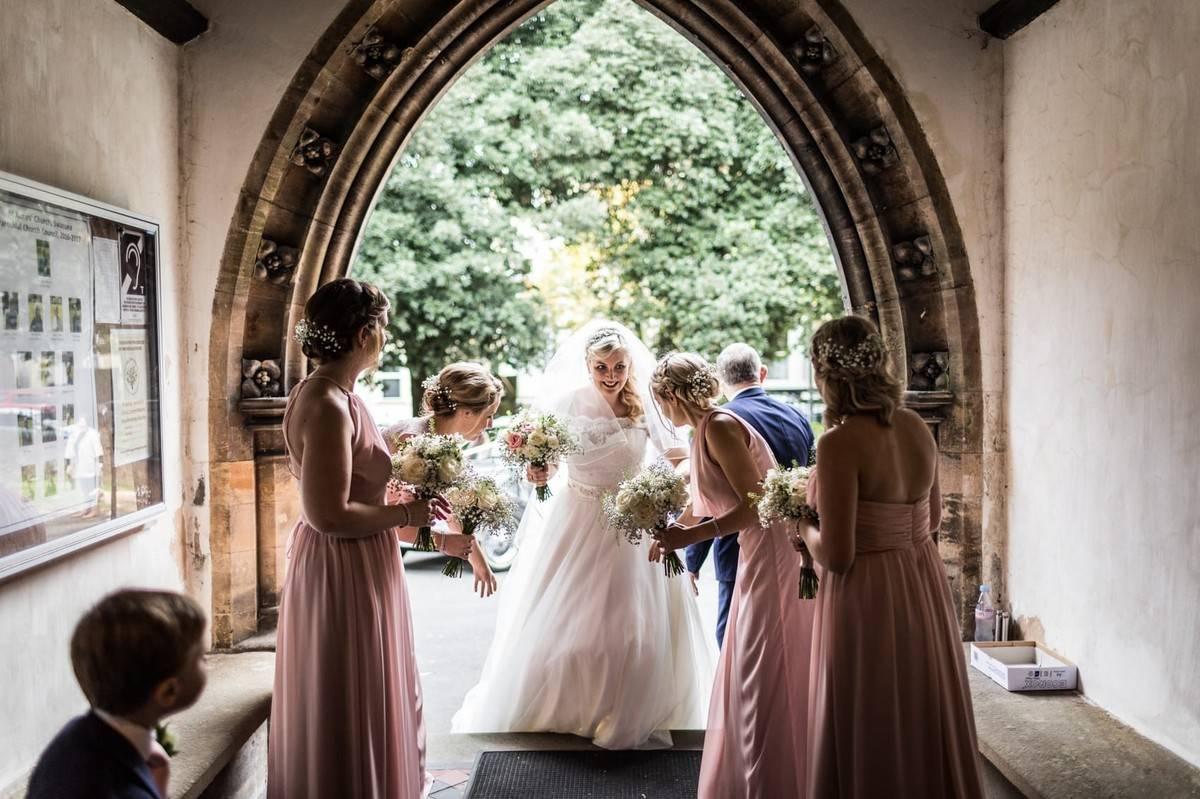
Why Is the Wedding March Controversial?
Just like some other Western wedding traditions (hiding the bride’s face with a veil until the groom had committed to the marriage, anyone?), there’s a little controversy surrounding both 'Wedding March' and 'Bridal Chorus'.
'Wedding March' was composed for A Midsummer Night’s Dream, a play that focusses on a Pagan god and goddess with its fair share of fairies and magic. Some religious leaders, particularly in the Roman Catholic churches, found the piece to be inappropriate for Christian ceremonies because of this.
'Bridal Chorus', or 'Here Comes the Bride' as many of us know it, has a much less cheerful role in the opera it originated from than it does in wedding ceremonies. In Lohengrin, 'Bridal Chorus' is played after the doomed marriage of Elsa and Lohengrin as Elsa walks to the bridal suite. Not exactly a deal breaker if you’re set on the song, but still worth knowing!
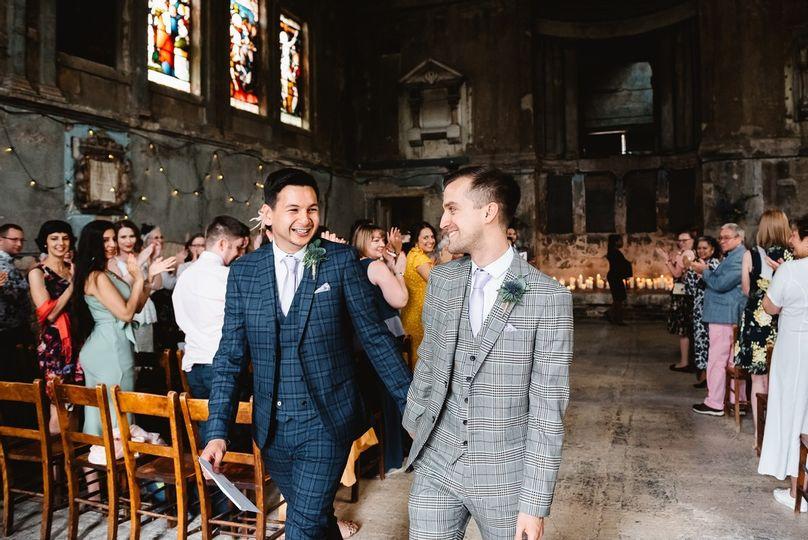
Do I Have to Walk Down the Aisle to the Wedding March?
No! It’s totally up to you. If you like the traditional stuff then go for it (we think it’s especially cool if you’re both theatre or opera lovers!), but if you fancy something more modern or an alternative classical piece then go for it.
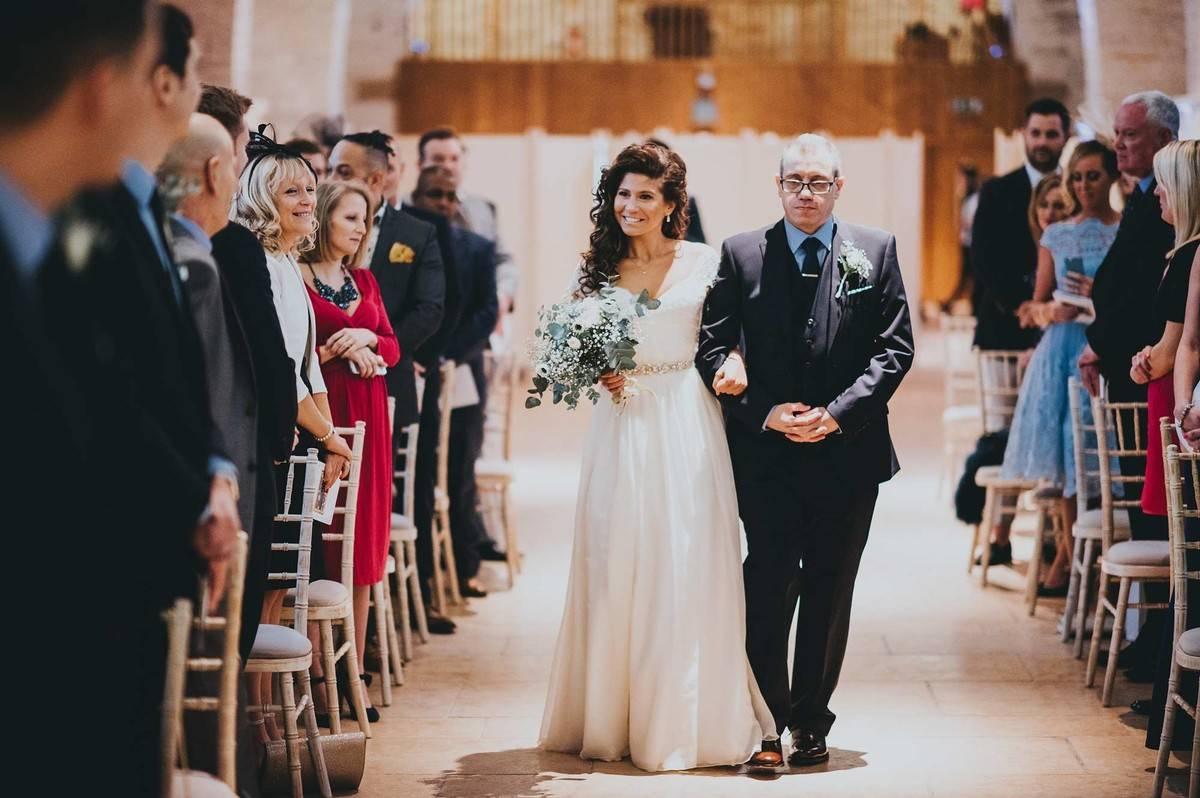
What Do Brides Walk Down the Aisle to?
Some brides still choose to walk down the aisle to 'Here Comes the Bride' and back down to 'Wedding March', however many choose to use a piece of music that is personal to them or a more modern favourite.
Just like everything else about your big day, it should be exactly what you want – it’s your day your way, all the way! We’d just recommend that you consider pace – you don’t want to have to rush your big moment because you’ve chosen a dance hit – and timings. You ideally want to be able to fade the music out at a good moment as you reach the top of the aisle, so consider this when you’re timing your walk and listening to potential tracks.
It’s also worth asking your musician, if you’re having one, what they think works well. Some songs work best on the piano and some on the guitar, so make sure you book in a chat ahead of the day to discuss song choices properly.
Finally, we'd double check with your registrar about suitable songs for your civil ceremony before settling on a winner. Songs with religious references are generally not permitted for civil ceremonies and so you may want to pick an alternative or an instrumental version.
READ MORE: 25 Questions to Ask Your Live Wedding Band, Musician or DJ
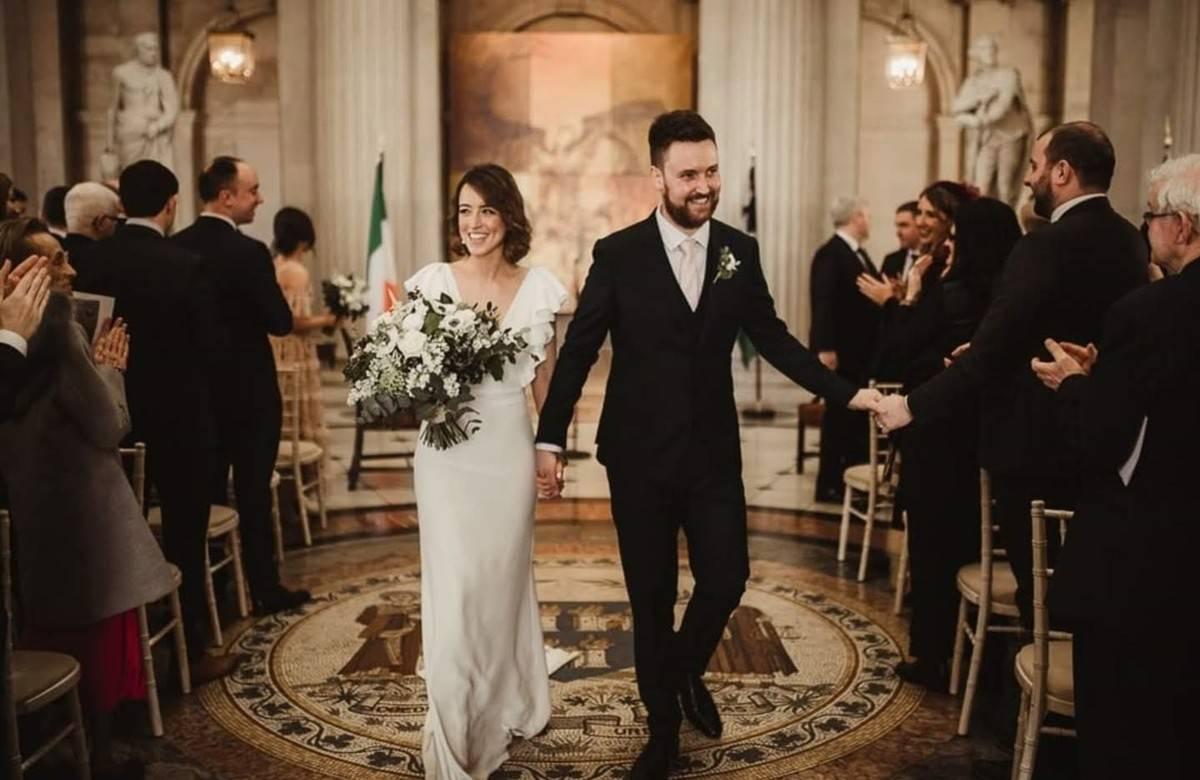
What Are the Most Popular Alternatives to the Wedding March?
We were hoping you’d ask that! As luck would have it, we’ve spent some time putting together our favourite bride entrance songs, wedding recessional songs and wedding ceremony songs. Here you’ll find everything from classical pieces to the likes of Christina Perri and John Legend. Oh, and there’s links to the actual Spotify playlists too – happy listening!
READ MORE: 50 Best Modern Wedding Songs for Contemporary Couples
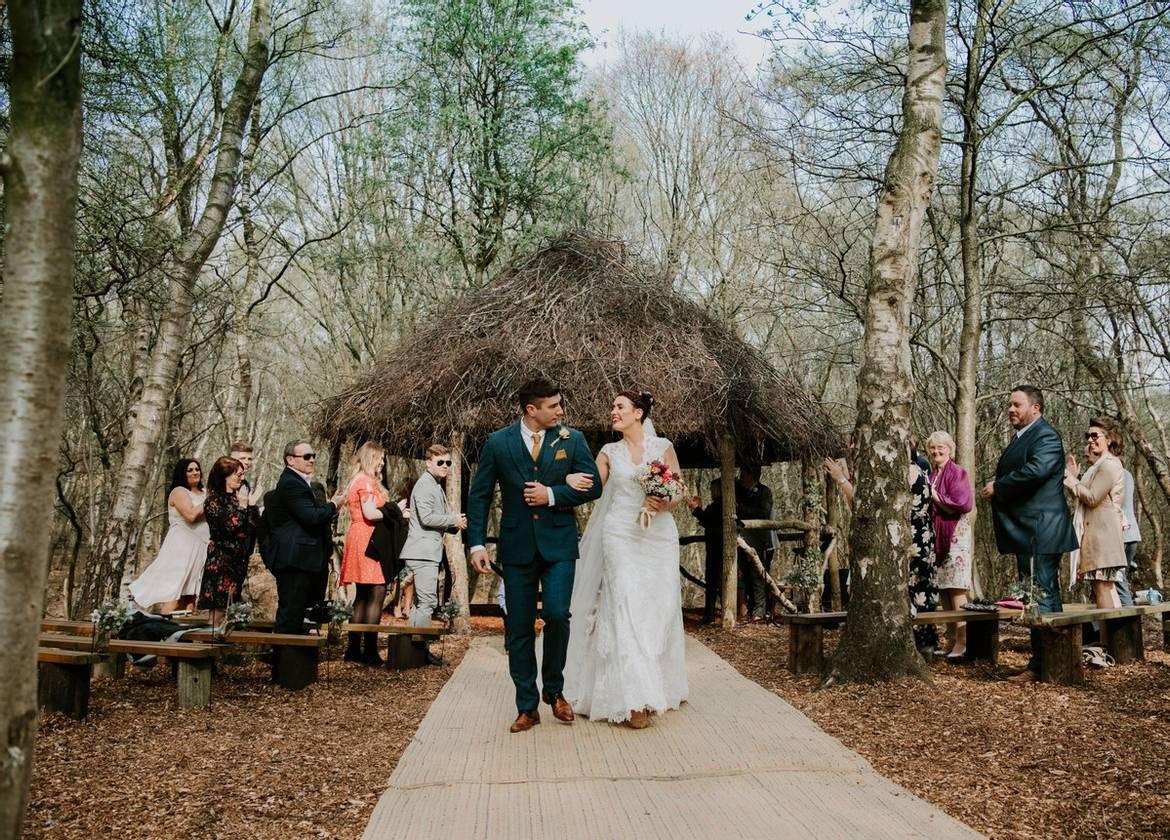
How Do You Play the Wedding March?
Well, we can’t say we personally know how to play it, but we did think this HD Piano tutorial is pretty good. Whoever is playing your wedding music - whether that's a DJ or a live musician - will have this song on hand as it's such a classic. If you're having a DIY wedding, how about sending it to your most musically gifted mate and get them to play it for an extra personal touch?!
Fancy doing a father daughter dance? We think they're super cute! Here are 75 father and daughter songs to consider.

